The Best Books I Read in 2023
From film criticism, to literary criticism, to film criticism...
Ah, year-end list-making! It took me a 16-ounce pistachio cold brew and three or four stabs at an overarching intro to my annual round-up before I concluded that it doesn’t need one. Away we go!
In that same new devil-may-care spirit, there’s probably no better way to kick off my 2023 lists than with the books I read this year, whose only real unifying trait is their shared position on my shelf. I was inconsistent in genre, style, tone, and pace—I read when I read and I didn’t when I didn’t—but I’ve come to enjoy that about my reading habits, which exist almost as a self-consciously preserved sanctuary away from the zeitgeist that dictates so much of what I watch and listen to. If nothing else, maybe that means there’s a greater chance you could find something new below, rather than just me saying “Yep, I liked it too!” about all the most popular reads of the year. And if that’s what you want, don’t worry: I’ll still be writing about Television and Movies!
10. The Twist of a Knife - Anthony Horowitz
No better place to start a list than with my favorite working mystery writer and the one true heir to Agatha Christie. His latest whodunnit is not the strongest of this Hawthorne series, but it’s still well a part of it. Meaning: entertaining prose, fun inside-baseball thoughts on the writing world, and an immaculately constructed mystery worthy of the Queen of Crime. Horowitz still has it!
9. The Murder of Roger Ackroyd - Agatha Christie
Speaking of Ms. Agatha… This one’s a classic for a reason: even within the wider ingenuity of her Poirot stories, the boldness and inventiveness of Ackroyd stands apart. It’s unfortunate that my copy’s forward partially tipped me off to whodunnit, but it’s a testament to Christie’s obfuscating genius that even with me suspecting the correct killer the whole time, I was never able to feel completely sure until the end—despite the final reveal holding up perfectly in retrospect. She’d go on to write more strictly entertaining books, but in terms of pure formal innovation (people are still ripping this off a century later!), it doesn’t get much better than this.
8. Martyr! - Kaveh Akbar
This one technically releases in January, but it’s important to me not just for being great but for being the first book I was able to get an advanced digital copy of—hurray for Knopf and the publicity machine!
In spite of (or perhaps because of) how hyper-specific this story is—a possibly suicidal, orphaned, addicted poet travels to Brooklyn to interview a dying artist for his forthcoming book on martyrs—I have a hard time imagining Akbar’s whole life isn’t there on the page. What else but experience could let you write so knowingly, so scathingly, and yet so forgivingly about the outer extremes of inner pain? To write so boldly and baldly about the darkest possible impulses transcends the longing for martyrdom that Akbar’s in-book avatar feels, instead approaching the kind of life-affirming purpose he fears (or worse, hopes) he can only find in death.
Those themes are rich enough to be interesting in any format, but how lucky we are that Akbar has the superpower of being able to write both poetry and prose—a hack that makes his book feel fuller, more alive for containing them both. This may be a trite observation coming from a non-poet, but it’s hard not to read Akbar’s cascading, blossoming language and his ability to simultaneously exist so far inside and yet so clearly outside his own head as proof of a magical, poetic lens through which he must see the world. With seeming effortlessness, he makes us see, too.
7. Trust - Hernan Diaz
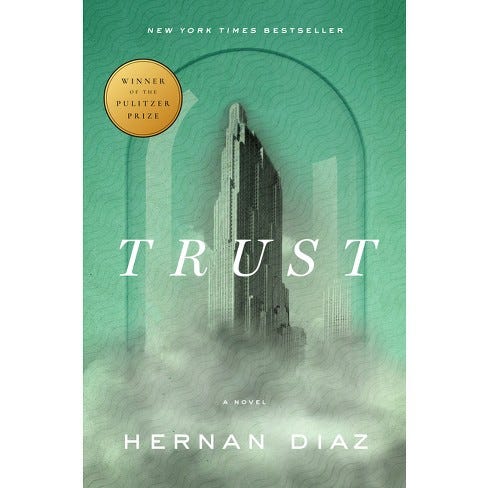
Finishing this layer cake of a novel, it’s easier to understand why all of the pull quotes on its back flap are as intriguingly vague as they are. The book’s main draw—other than Diaz’s magnificent and ever-transforming prose—lies in its vanishing edges, each of its stacked narratives bleeding into one another to create a palimpsest that only tells the totality of its tale of American greed and myth-making in aggregate. Even the full pile has holes missing, places where the friction between overlapping accounts has worn away any observable truth, or else gaps where the only people who observed the truth weren’t willing or able to give their accounts.
It’s all very mysterious for a story that more or less just rises and falls along with the stock market, but Diaz does something fascinating by rendering the usually-nebulous forces behind our economy as almost insultingly simple, thus leaving the true mystery to the complex people who puppeteer those forces. A unique, engrossing work.
6. A Little Blood and Dancing - Tyler Parker
A southern-fried tone poem dressed up as a crime novel, Ringer NBA writer Tyler Parker’s A Little Blood and Dancing takes nearly four hundred pages to tell a story you could cover in one, but that feels more like a generosity than a threat once you’re acquainted with his beautifully rambling, flavorful words.
In fact, the book begins and ends with a plot but essentially just vibes out in between, preferring to build a neon collage out of impressionistic blasts of color and image. It plays, and while the crime narrative isn’t going to dazzle any genre diehards, the pure electricity of Parker’s language should do enough dazzling for anybody. It’s a little bit like a Coen Bros film and a little bit like nothing else I’ve read, but anyone with any affection for the American South—or for complex, salty characters of all stripes—will no doubt find some beauty in Parker’s plaintive, dustbitten poetry.
5. Cinema Speculation - Quentin Tarantino
A very fun book that taught me a lot about what the movies taught Quentin a lot about. It aptly doubles as a Tarantino-guided film safari through the 70s and early 80s that definitely starts stronger than it ends, but even at its weakest points, it still feels like a valuable education on the era and the filmmaker it spawned.
The book is even better than the movies it’s about; even when the films don’t seem worthy of it, Tarantino’s analysis mines something rich and interesting out of them. And even though he’s still a much better writer of screenplays than prose, his truncated, run-on-y writing style can’t dampen his nuclear wit and filmic ingenuity. If his upcoming “last” movie (conspicuously also about 70s film criticism) means he’ll be writing more books, then I guess I’ll be reading more books.
4. Journey Under the Midnight Sun - Keigo Higashino
Probably the first time a mystery not written by Agatha Christie or Anthony Horowitz has outranked books from my two faves, Higashino’s latticework crime novel feels less like one riddle than a web spun out of tons of them.
It’s one of the most structurally fascinating mysteries I’ve ever read, beginning (not unlike Glass Onion) with a fairly straightforward yarn and gradually panning out until we’re several layers and labyrinths removed from where we’ve started—with, of course, a clear path back to the beginning just waiting to be traced by a crafty detective. Long but never boring, satisfying but never overly explanatory, this is a wonderfully fresh variation on the genre I so love.
3. There’s Always This Year - Hanif Abdurraqib
Another book that doesn’t release until the spring, but I couldn’t wait to read my favorite author on my favorite subject (tysm, Penguin Random House).
This is nominally a book about basketball, in the same way that basketball is nominally a game about basketball, but both things are really about life. “Ball is life,” they say, and they mean one thing but the other, opposite thing is implied just the same. There’s little in the way of barriers between the two, I’m saying: a faded YMCA court or the cracked asphalt of a school’s blacktop might as well be a mural to all our collective longings.
And speaking of barriers or the lack of them: For Hanif Abdurraqib, the membrane between reality and poetry is permeable and thin. In his voice, a basketball is only ever a sentence away from a sunset, or an airplane, or a city, or its people. The gift of his writing is that it makes poets out of us all, gently asking us to look around and realize the invisible lyricism that runs through everything. It can be a lot to talk or think or write that freely—it is a kind of vulnerability, after all—but Hanif grants us the permission to go there with him.
And basketball, as much as anything else, deserves to be talked and thought and written about with such freedom, with such care. It’s the perfect subject for a writer who’s always been able to see life from above the rim, reading the X’s and O’s of fast breaks and heartbreaks and slam dunks and slammed doors as pieces of a larger schematic, a pattern outside of the pattern.
In applying that kaleidoscopic view to a topic as populist as basketball, it’s possible that he could lose those people more interested in his thoughts on specific players than in how the game reminds him of his father. But I see it differently: the fact that he and his poet’s eye can spot a world of meaning superimposed over so much painted hardwood means that it was always there to be spotted; that you or I can experience the same three-dimensional, overflowing love of sport if only we have eyes to witness, if only we’re willing to lower the barriers that probably never existed in the first place. Talk about hoop dreams!
2. Babel - R.F. Kuang
That it took me so long to finish Babel is not a reflection of its quality, though it may be a reflection of the dense, intricate nature of its achievement; in every aspect of its construction, this is one of the greatest acts of sheer intelligence I’ve ever beheld.
In writing a lightly fantastical alternate history of England, R. F. Kuang—author, translator, genius—has taken her intimate, philosophical understanding of the world of translation and imprinted it onto the world of empire so seamlessly that you’d be hard-pressed to believe it didn’t happen exactly as she wrote it. By making translation a superpower for the rogue translators under British employ, she literalizes the “magic” of language, though not by much—every single cog in her clockwork universe is so well considered, so thoughtfully imagined, and so beautifully written as to make the transcendent power of language self-evident.
Even better, it all fits together as snug as a bug without feeling too-perfect or artificial; if it is a masterfully designed clock, it still ticks to the arrhythmic beat of a messy human heart. Just when all its academic posturing on the art of translation threatens to lose sight of its characters, we’re wowed by one of many achingly romantic campus scenes between these scholars and friends. And just when its cozily rendered Oxford seems most enchanting, we’re shocked out of the illusion by the realities of imperial cruelty. Crucially, language runs through all of this like a spell, tracing real history and lining it with magical silver—all the better to heighten its stakes and clarify its battle lines.
1. David Fincher: Mind Games - Adam Nayman
It took me three different tries to start this in earnest, which tells you something about the density (literal and not) of its text. But I got over the hump this time, and boy am I grateful; this is easily some of the best film analysis I’ve read anywhere, on anyone. Even better that it’s on one of my favorite directors, whose movies were such a thrill to watch and re-watch in sync with this book, which forensically examines each one through the specifics of its making and the wider lens of Fincher’s oeuvre. It’s fantastically intelligent stuff, as heady and academic as a textbook but way more fun to read.
I’ve always enjoyed Adam Nayman’s pretentious-sounding-but-grandiloquently-insightful podcast appearances on The Big Picture, and his writing has a similar bent: I had to google a lot of words, but the precision and wit of each literary puzzle piece slots perfectly into the whole. And possibly the best compliment I could give it: despite Nayman’s clear ambivalence about Fincher as an artist, I came away from the book loving Mr. 100 Takes more than ever. Not a light read, but a great one.
Honorable Mentions
The Stolen Coast - Dwyer Murphy
A heist novel in much the same way as Ocean’s Twelve is a heist movie: more about the vibes and the conversations and the possibilities represented by a heist than the steal itself. Not a complaint—this small-town Massachusetts world is so much more specific than you’d imagine, and the characters all move and speak in shuffles and side-steps that are just as much a product of their personalities as of their sub-legal occupations. It’s clever, and romantic, and just generally a good hang—and that’s on top of using pickup basketball as a recurring motif.
Middlemarch - George Eliot
I read this as a part of the wonderful Fran Magazine’s inaugural “Middlemarch May,” and I’m not sure I would’ve done so otherwise—but I’m glad I did! It’s a hike, but a rewarding one: long, challenging, and rich. It asks for your undivided attention to each of its many sprawling paragraphs if you want to get anything out of it (I had to reread a LOT), but it pays off with gallons of profundity. Not every section is equally interesting, but Eliot goes on an absolute heater across for the entire final act, splashing in dagger after dagger of world-encapsulating, Steinbeckian wisdom en route to one of the best closing passages of all time.
Meander, Spiral, Explode: Design and Pattern in Narrative - Jane Alison
An instant “Books I’d Teach If I Taught English” classic, this literary analysis explores the recurring narrative shapes we cling to (the arc, the wave, the spiral), asking whether we do so because we’re used to them or because they spring up as organically in literature as they do in nature. It’s not a thrill a minute, but it’s nowhere near as dry as a book on literary theory threatens to be—Alison is far too witty and slick for that!
Sea of Tranquility - Emily St. John Mandel
I’ll always be indebted to Mandel for writing the book that inspired the televisual masterwork that is Station Eleven, but I’ve never enjoyed her books as much as the show one of them spawned. That said, this one is closer to that book/show’s impressive reining of various time- and storylines into a single purposeful braid, gesturing at a loosely connected galaxy before revealing its various far-flung locations and periods to be parts of one intimately connected whole. Would love to see an adaptation of this from the S11 team!
Hell Bent - Leigh Bardugo
Feels like a graduate year to Ninth House’s undergrad: in some ways a deepening of the most intellectually stimulating parts of the “Harry Potter for adults” adventure that came before, but in others a digression from the simple pleasures of hanging with your friends with fewer pressing anxieties. Good, not great!


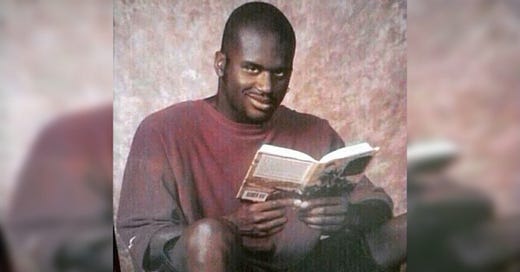


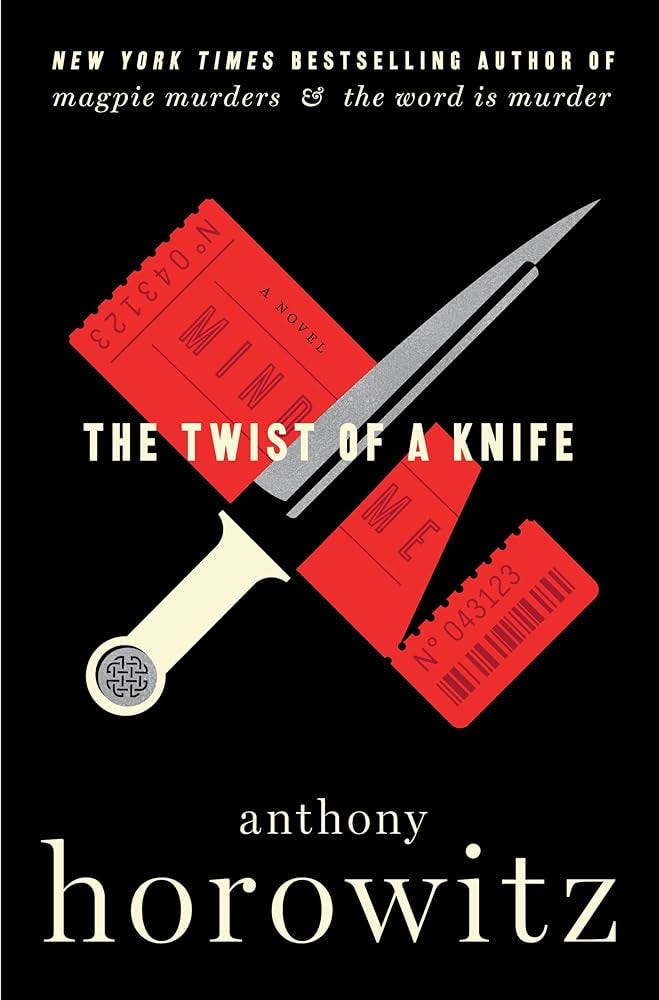
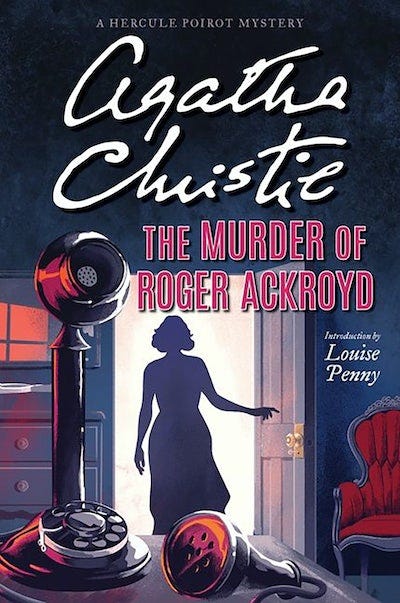
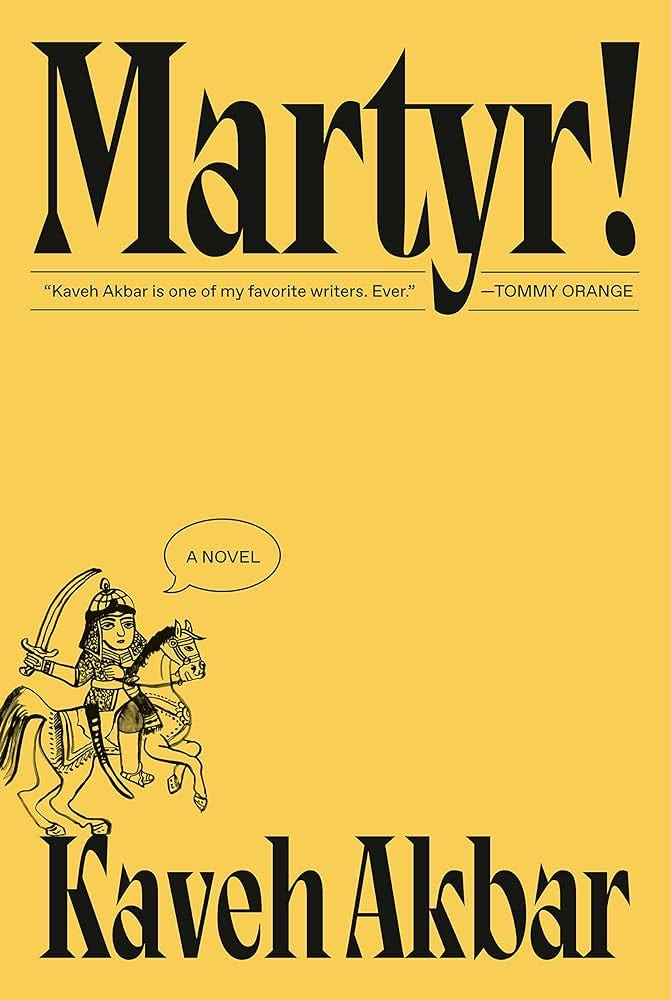

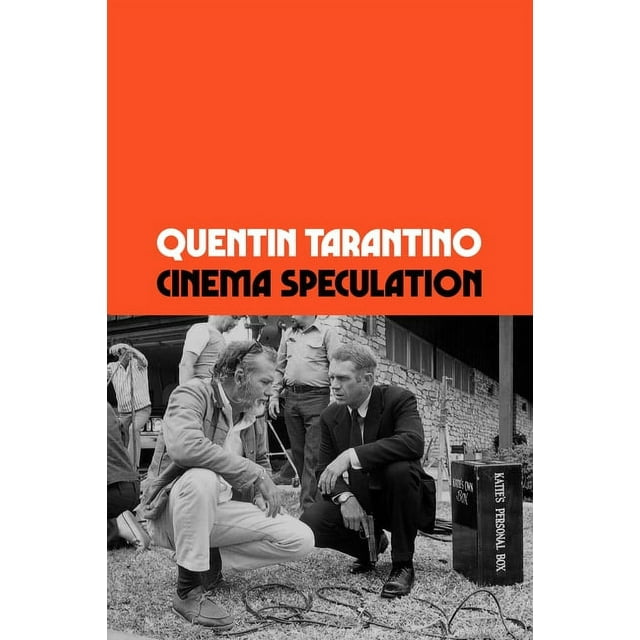
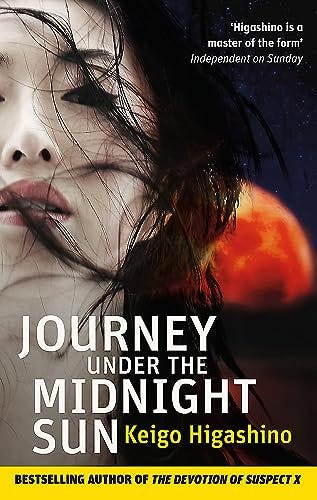
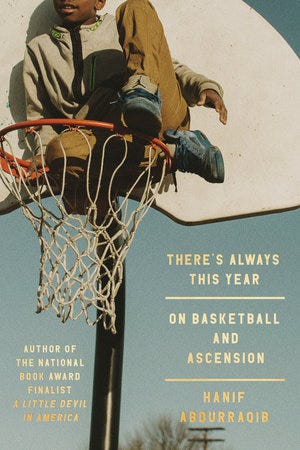
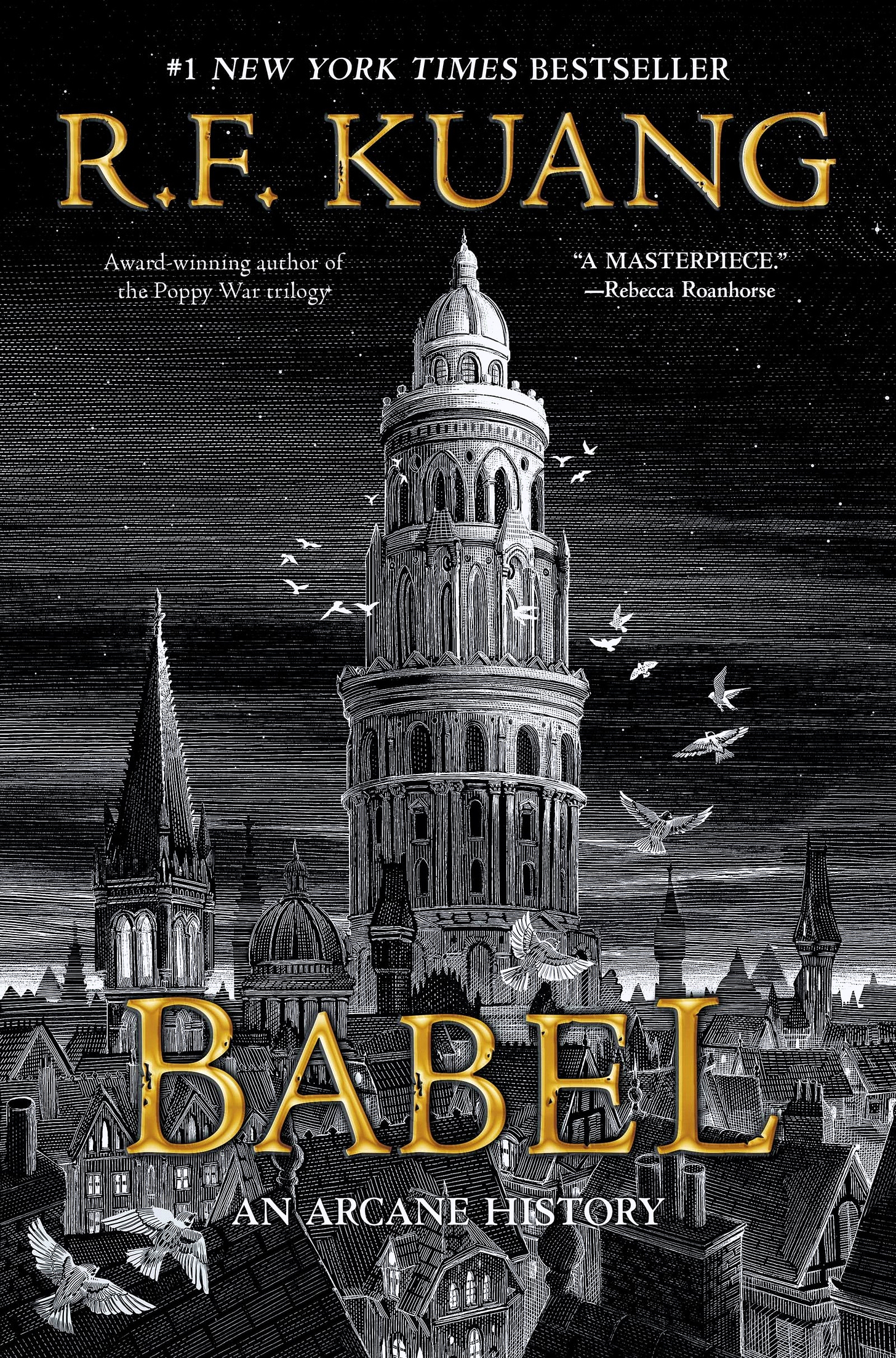
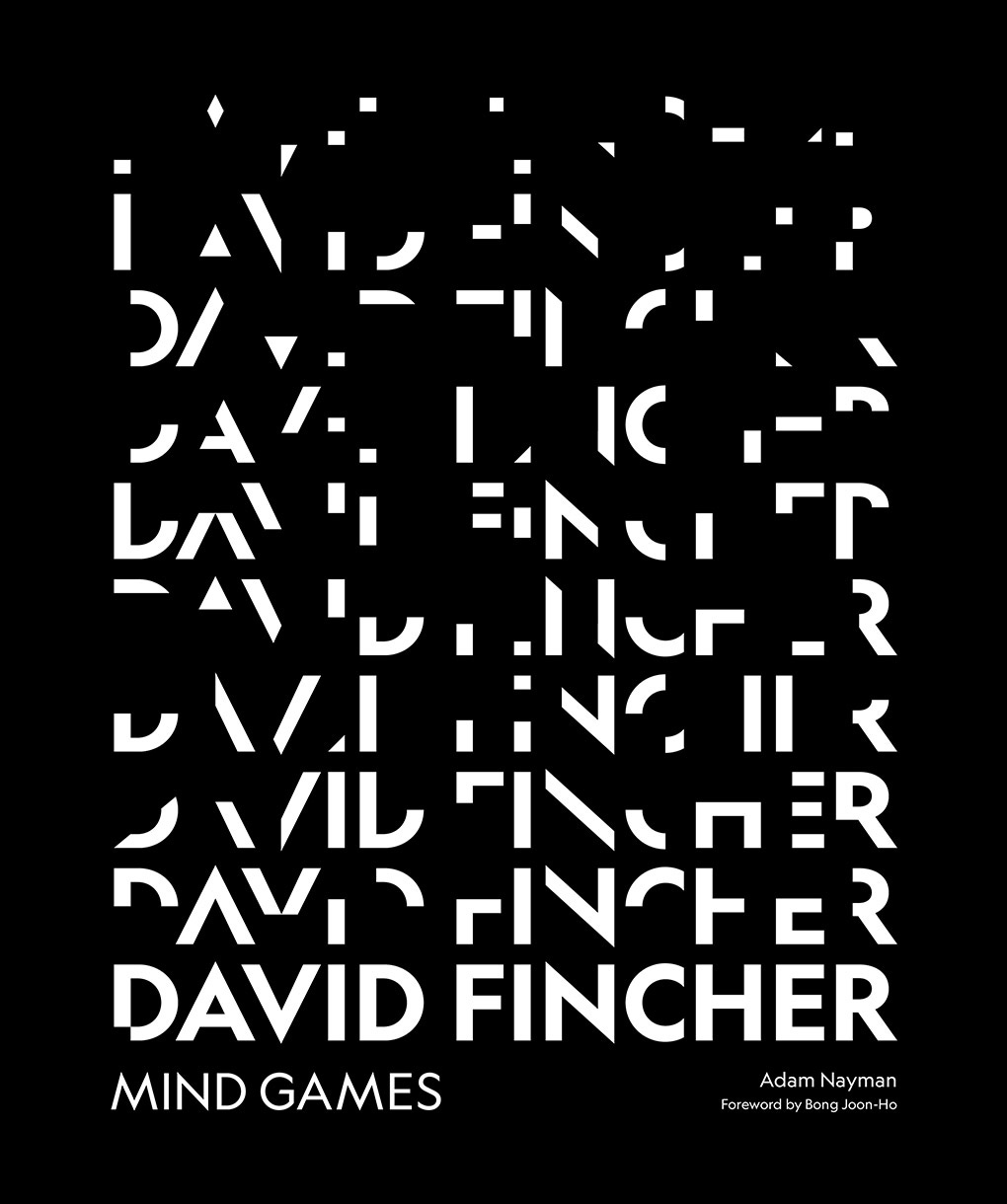
That Jane Allison book is really essential. And so fun to read!